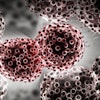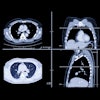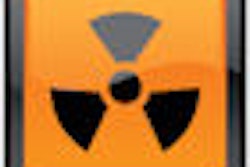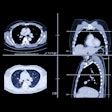Friday, December 4 | 10:30 a.m.-10:40 a.m. | SST15-01 | Room S404AB
With the rise in CT perfusion for numerous diagnostic tasks -- like cerebral blood flow assessment and follow-up for cancer patients -- the higher radiation doses associated with perfusion can be troubling. But adaptive statistical iterative reconstruction (ASIR) technique can reap the benefits with lower radiation dose, according to this Friday morning presentation."We carried out this study because of the concern of radiation dose in CT perfusion studies, particularly for stroke and cancer patients who may require multiple perfusion studies for optimal management during the course of their diseases," said presenter Ting-Yim Lee, Ph.D., from the University of Western Ontario in London, Canada.
In the study, four brain tumor patients underwent successive CT perfusion studies. The mAs was lowered from 200 to 20 between the first and second scans, in anticipation of applying the ASIR algorithm (GE Healthcare, Chalfont St. Giles, U.K.) to increase sharpness and reduce noise in the low-dose images.
"We were able to demonstrate that ASIR can reduce the effective dose of a CT perfusion brain study by 10 times (5.9 versus 0.59 mSv) relative to the standard technique of 80 kVp and 200 mAs per image without affecting the quality of CBF and CBV maps in both gray and white matter," Ting said. "If our result is confirmed with a larger study, the benefit-to-risk ratio of a CT perfusion study will be greatly increased."




















